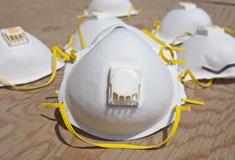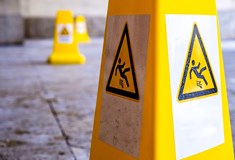Silica dust
Inhaling large amounts of silica dust over a long period of time can cause a number of serious respiratory diseases and fatal illnesses including silicosis, lung cancer, tuberculosis (in those with silicosis) and chronic obstructive pulmonary disease (COPD).
Silica is a natural substance found in most rocks, sand and clay. It’s typically used as a constituent of construction materials such as bricks, tiles, concrete and mortar. Silica dust is also produced when cutting, grinding, drilling, polishing and disturbing materials that contain crystalline silica particles.
Silica is the biggest risk to construction workers and people who work in industries using silica flour to manufacture goods. Employers can limit workers’ exposure to silica dust by providing them with adequate protective equipment and training to protect them from harm at work.
Symptoms of silicosis
Symptoms of silicosis can take many years to develop and you may not notice any problems until after you’ve stopped working with the substance. The symptoms can also get worse, even if you’re no longer exposed.
Common reported symptoms of exposure to silica dust include:
- Shortness of breath following physical exertion
- Severe cough
- Fatigue
- Loss of appetite
- Fever
- Chest pains
- Cyanosis (bluish skin).
If you, or a non-working family member, has been diagnosed with a disease as a result of exposure to silica, our solicitors will fight hard to secure compensation on your behalf. As a Unite member, you will keep 100% of your damages and won’t pay a penny in legal fees. Contact Unite Legal Services to make your claim.
Unite maintains a register of all members who believe that they have been exposed to silica dust at work. This record of exposure means that if Unite members require legal assistance as a result of being diagnosed with a disease caused by silica dust exposure, it can be used as potential evidence to aid their claim. To add your details to the register, please complete our Silica Dust Questionnaire.
Claim Now
Contact us on 0800 709 007 today for free, expert advice





